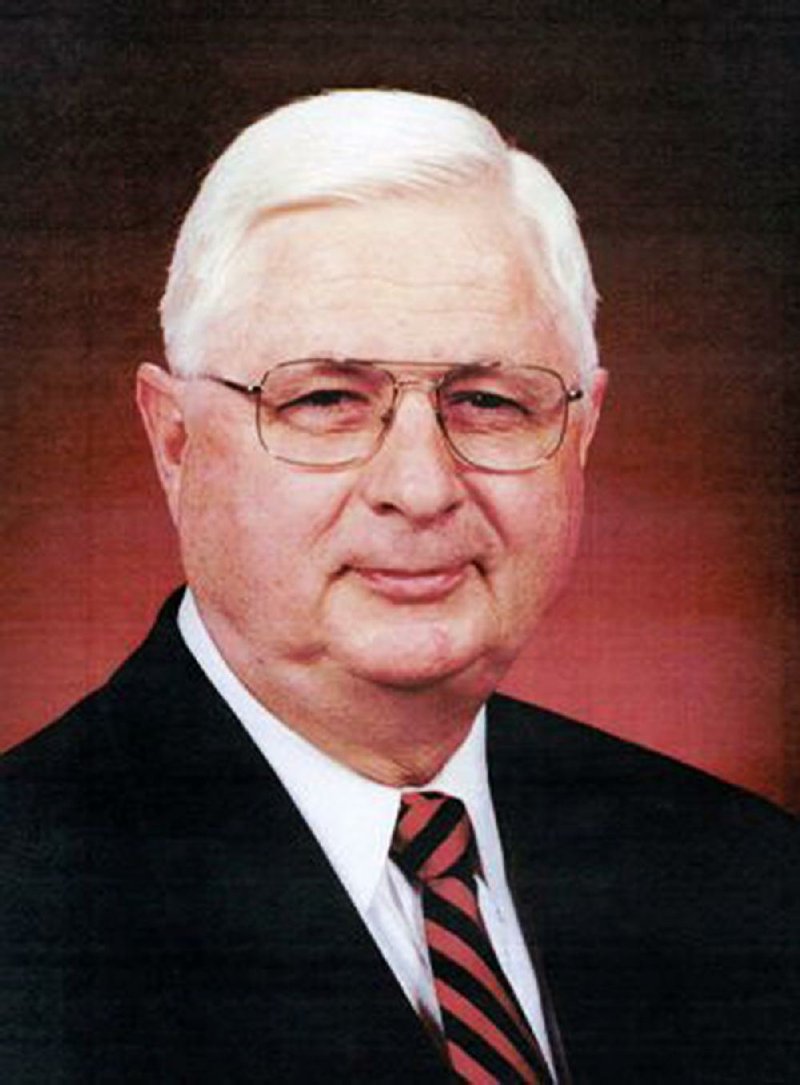When Jack Wagoner Jr. joined with three other physicians to open a medical practice nearly 50 years ago in Little Rock, they took a gamble no other doctor had taken in Arkansas.
One of Wagoner's fellow physicians, Raymond Miller, was black. Wagoner was joining what became the first racially integrated medical practice in the state. Wagoner died Wednesday of complications after a heart attack, family members said. He was 79.
Miller, who died in 2005, and Wagoner -- along with Hoyte Pyle and Robert Moore -- established the Little Rock Internal Medicine Clinic in 1970.
Wagoner eventually went on to serve as chief of staff at St. Vincent Infirmary and served on the hospital's board.
"He was a leader in Little Rock's medical community," Pyle said.
Wagoner was born on Sept. 29, 1938 in Earle. He graduated from Will Rogers High School in Tulsa at age 16. He graduated from the University of Arkansas, Fayetteville in 1959 and from the University of Arkansas for Medical Sciences in 1963.
He performed his internship at UAMS. Then he served as a captain in the Air Force for two years. He returned and completed his internal-medicine residency followed by a fellowship in pulmonary and infectious diseases, the same specialties as Miller.
With four children to raise, beginning a career in medicine by opening a racially integrated medical practice wasn't without risk for Wagoner and the others. Wagoner's father warned him he was "throwing his education away."
"We did have some apprehension about how both communities would accept us," recalled Clarice Miller, whose husband was Raymond Miller. "I was a little fearful about what was going to happen. But they were confident it was going to be fine."
The practice thrived, in part because other Little Rock doctors quickly began referring patients to the newly formed practice.
"A lot of doctors got behind the practice and supported us," Miller said. "There was not much fear after they opened the practice. It went smoothly."
Miller said the partners' practice was more than a business relationship.
"The partners were friends," she said. "We were like family. We socialized. Our kids were friends. That was significant to me."
Of the four doctors, Clarice Miller said Wagoner had the most comforting presence, recalling that he was at the hospital "the night my husband got sick.
"He was the kindest man that I think I ever met," she said. "He had a quiet demeanor. You never heard him raise his voice. He didn't talk much, but when he did, he said the right thing. Just to be in his presence was comforting."
That same aplomb helped Wagoner raise four children with his wife, Lorraine, who survives him. His son, Jack Wagoner III, recalled when at age 7 he used an extension cord to conduct an experiment. He cut it to expose the two wires, taped one wire to one side of a light bulb and then the second wire to the other side.
"Then I plugged it in," the younger Wagoner said. "There was a loud boom and all the lights went out. My parents came frantically running into my room. When they saw what happened and got the lights back on, my father came back to talk to me. He said it was good that I was curious about the experiment. He explained why it didn't work. And he explained all about electricity to me.
"All he ended with was to ask me to promise that I wouldn't do any more experiments involving electricity without letting him check it out first. That was dad."
The doctors remained friends long after they retired. They and other physicians would meet at 6 a.m. every Thursday in the doctors' dining room at St. Vincent, a ritual they began when they were in practice and continued until just before Wagoner's death.
"We loved him," Pyle said. "He was calm, very level-headed. And he was a very close friend."
Metro on 10/07/2017

